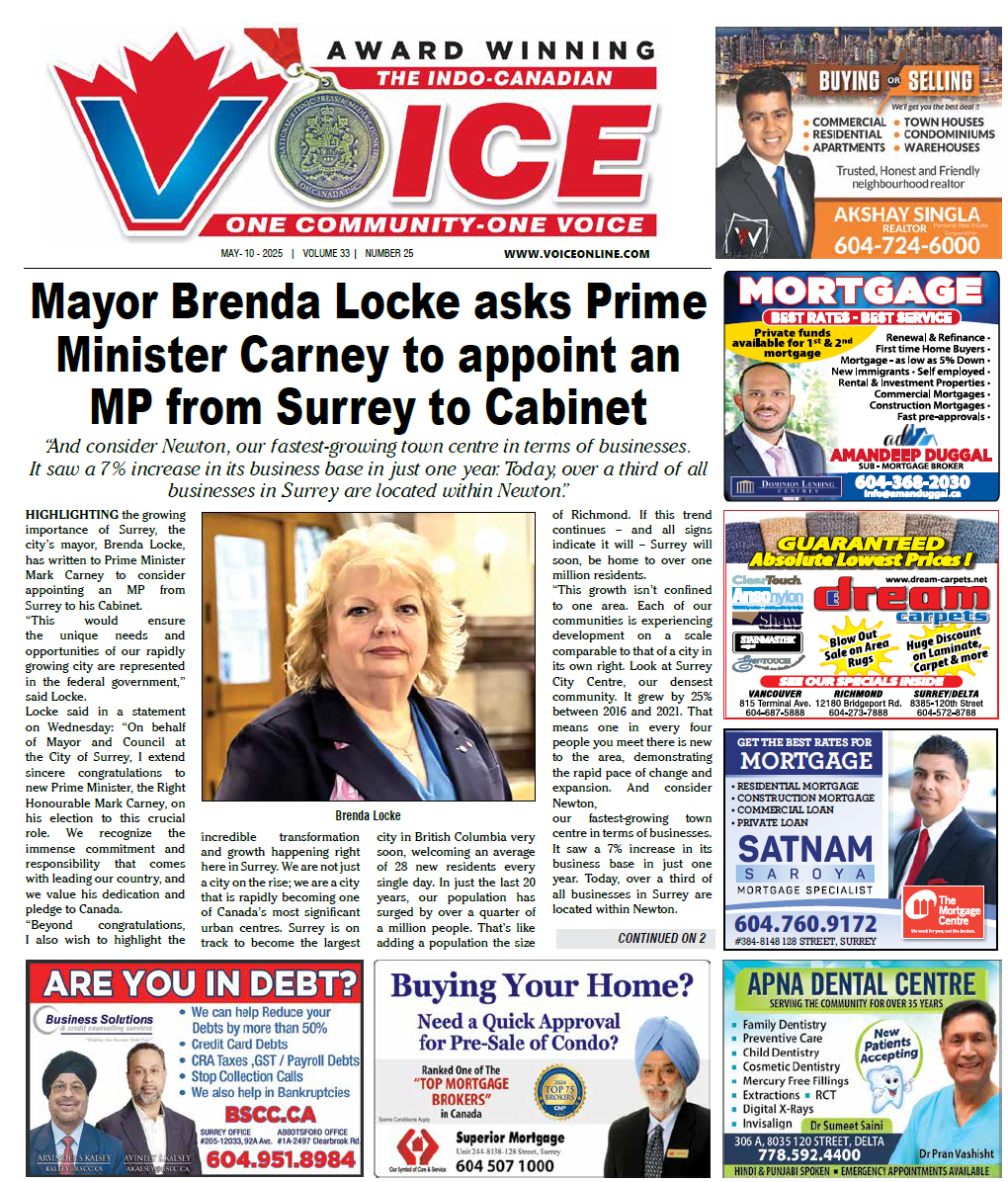MARK Carney is the new Liberal Party leader and the next Prime Minister of Canada.
Carney won 85.9 per cent of the total vote — a resounding victory.
The former governor of the Bank of Canada and the Bank of England said that he was a pragmatist above all. He added: “And that means when I see something that’s not working, I’ll change it. So, my government will immediately eliminate the divisive consumer carbon tax on families, farmers, and small and medium-sized businesses. And we will stop the hike in the capital gains tax because we think builders should be incentivized for taking risks and rewarded when they succeed … Change that builds the strongest economy in the G7.”
Regarding U.S. tariffs, Carney said: “The Canadian government is rightly retaliating with our own tariffs that will have maximum impact in the United States and minimum impact here in Canada. My government will keep our tariffs on until the Americans show us respect … And make credible, reliable commitments to free and fair trade. In the meantime, we will ensure that all proceeds from our tariffs will be used to protect our workers.”
Carney said: “America is not Canada. And Canada never, ever, will be part of America in any way, shape, or form. We didn’t ask for this fight, but Canadians are always ready when someone else drops the gloves. So, Americans should make no mistake… In trade, as in hockey, Canada will win. But this victory will not be easy. We are facing the most significant crisis of our lives. We will have to do extraordinary things … together.”
He said Conservative Leader Pierre Poilievre will weaken Canada’s economy. He attacked him for not getting his security clearance “at a time when our national security is under threat as never before.”
He added: “He would undermine the Bank of Canada at a time of immense economic insecurity. Pierre Poilievre wants to shut down CBC and Radio-Canada at a time when disinformation and foreign interference are rising. He insults our mayors and ignores the First Nations when it’s time to build. He would end international aid while democracy and human rights are in peril around the world. And he would let our planet burn.”
Carney said: “Unlike Pierre Poilievre, I have actually worked in the private sector. I know how the world works, and how it can be made to work better for us. That knowledge and experience is especially useful now in the service of Canadians, when we must build a new economy and create new trading relationships.”
He said he knew these were dark days brought on by a country we could no longer trust. He added: “We’re getting over the shock, but let us never forget the lessons: We have to look after ourselves and we have to look out for each other. We need to pull together in the tough days ahead.”
Carney said: “To the families watching this evening … I promise you this: Together, we can—and will—get through this crisis. We can—and will—come out of it stronger than ever because Canada is built on the strength of its people.”
THREE days ago, on March 6, EKOS Politics said that the Liberal Party would have a clear majority if an election were held tomorrow. The principal driver has been a burgeoning national identity and search for economic sovereignty in a coming storm produced by the Trump announcements.
So far, Pierre Poilievre has not been able to provide a successful pivot to these new dominant issues and whatever attempts have been made are not reversing these trends. In fact, the Liberal rise has continued even while the Conservatives have made efforts to correct their course, according to EKOS Politics.
A roll-up of results from February 27 to March 5 of a large sample of nearly 2,000 cases sees the Liberal Party with a clear lead for the first time since November 2021. The Liberals are at 40.7 per cent nationally, the first time they have broken the 40-point threshold since May 2020. The Conservatives, meanwhile, are at 35.5 per cent while the NDP is at 12.8 per cent.
These highly favourable numbers for the Liberals understate the party’s seat advantage, as they now have large and stable leads in Ontario, Quebec, and the Atlantic, while they are competitive in British Columbia.
“This distribution would yield a comfortable majority, an advantage that becomes larger when we specifically prompt with Mark Carney as the party leader. We have blended the generic and leader-prompted ballot results as we think that is a reasonable balance. Without a leader prompt, the results are much closer in Quebec and Ontario so the majority outcome would be less certain,” said EKOS Politics.














